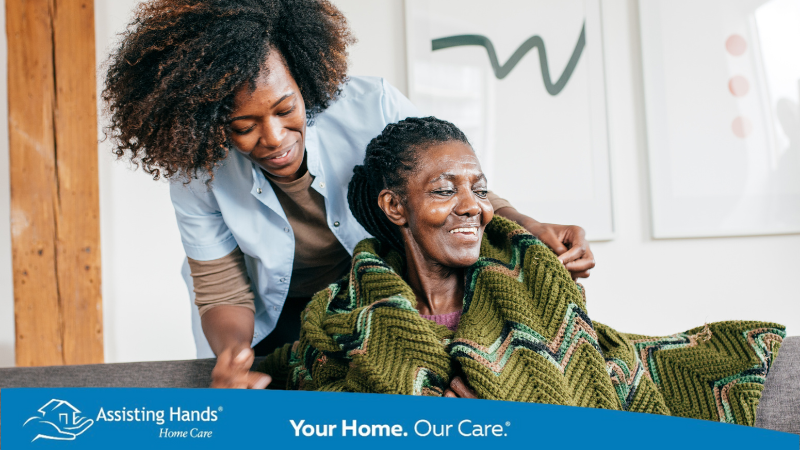
Type 2 diabetes most commonly affects older adults. It is a serious disease caused by high blood glucose, or blood sugar. Serious health complications can arise in elderly individuals with untreated diabetes. Seniors should be concerned if they develop these primary warning signs of diabetes.
Diabetes develops when the body fails to produce enough insulin, does not utilize the insulin efficiently, or a combination of both. When insulin levels are not optimum, too much glucose can enter the bloodstream (also known as hyperglycemia)—which can be disastrous for health.
As mentioned, Type 2 diabetes is most common in people aged 65 and over. Older adults face unique challenges when diagnosed with the disease. Complications include heart disease, hypoglycemia, and kidney failure. Eye problems, stroke, and nerve damage are also possible.
Recognizing diabetes symptoms is critical to avoiding serious health problems. Some seniors may experience symptoms that are so mild that they are unnoticeable. Others may be burdened with clear signs that the disease has emerged. Following are the main warning signs of diabetes.
1. Frequent Urination
Blood sugar levels are high in people with diabetes. The diabetic senior’s body responds by filtering out the excess glucose from the blood through the kidneys. As the kidneys work in overdrive, the senior urinates more frequently. Affected individuals may urinate more often at night.
2. Increased Thirst
The frequent urination that results from the body trying to eliminate excess sugar causes more fluids from the body to be expelled. This can lead to the senior experiencing dehydration and feeling an unusual increase in thirst. Feeling thirstier than usual is called polydipsia.
3. Excessive Fatigue
Excessive tiredness is another symptom of diabetes in older adults. When blood sugar levels are high, the senior’s body is less able to convert glucose into energy. Not enough sugar moves from the bloodstream into the body’s cells. Energy levels are zapped, and the senior feels sluggish or fatigued.
4. Constant Hunger
Being hungrier than usual is a symptom of diabetes. Food delivers energy, but seniors with diabetes are unable to receive enough energy from the foods they eat; this is because the disease prevents dietary glucose from reaching the body’s cells. Even after eating a large meal, diabetics can feel hunger.
5. Slower Healing
Seniors with diabetes will notice that ordinary cuts and bruises take weeks or months to heal. Sores on the feet can develop, and skin infections do not resolve quickly. Their high blood glucose levels impede circulation and prevent the body from healing naturally and at a normal rate.
6. Dizziness
Even seniors with diabetes can experience low blood sugar, a condition known as hypoglycemia. In people with hypoglycemia, blood sugar plummets to below 70 mg. Weakness, shakiness, confusion, dizziness, and fainting can result. Drinking fruit juice can elevate blood sugar quickly.
7. Headaches
Headaches are a common complaint among older people with diabetes. The brain requires a consistent delivery of glucose to function at its peak. Diabetes, however, causes spikes and dips in blood sugar levels. Diabetic seniors, therefore, are likely to experience headaches.
8. Tingling Sensations
Older people who have lived with diabetes for several years can develop nerve damage as a result of blood sugar affecting circulation. These seniors experience a tingling sensation, weakness, pain or numbness in their hands and feet. Peripheral neuropathy can worsen over time.
9. Blurry Vision
Diabetic seniors have difficulty focusing when their high blood glucose levels draw fluid out of the eye lenses. The symptom can trigger the creation of new blood vessels behind the retina, thereby damaging existing vessels. Untreated diabetes can lead to partial or complete vision loss.
10. Painful Gums
Diabetes can compromise the senior’s immune system. What results is a greater risk of infection in the gums and bones that anchor the teeth. Symptoms include red, swollen or painful gums. In addition to painful gums, seniors can suffer from sores, loose teeth, and pus-filled gum pockets.
11. Dry Mouth
Dry mouth is another telltale sign of diabetes. The senior can experience dry mouth at intervals as blood sugar levels fluctuate. When the mouth is unable to produce enough saliva, other uncomfortable symptoms are likely to develop, such as dry, cracked lips and a tongue that feels rough.
Seniors who experience any of the abovementioned warning signs of diabetes are urged to notify their physician. The doctor may order an oral glucose tolerance test to measure how well the body responds to glucose. A diabetes treatment plan can help seniors live a healthy and active lifestyle.
The American Diabetes Association recommends diabetes screenings every three years in people over age 45 to increase the chances of early detection and prevent serious health complications. Seniors with multiple risk factors, such as obesity, should especially be screened regularly.

Older adults who need in-home support to keep their blood sugar under control have numerous resources, including Assisting Hands Home Care. Our non-medical home health care keeps seniors in the best physical and emotional condition and improves their quality of life.
Responsibilities our caregivers routinely perform include preparing balanced meals in accordance with the senior’s dietary restrictions and shopping for fresh groceries. If the senior takes medicines for diabetes or other conditions, we provide timely medication reminders to ensure medication compliance.
We also provide help with personal hygiene tasks, such as toileting and grooming. Our caregivers provide safe transportation to doctors’ offices and for errands. Assisting Hands Home Care professionals are also excellent companions, keeping loneliness and social isolation at bay.
Elder care services provided by our reputable home care agency are flexible. Caregivers can meet a variety of schedules and are available for respite care, live-in care, post-surgical care, 24-hour care, and compassionate dementia care. We’ll customize an ideal care plan for your elderly loved one.
Families with aging loved ones living in Naperville, Glen Ellyn, Warrenville, Westmont, Woodridge, Lisle, Wheaton, Illinois, are encouraged to consult Assisting Hands Home Care for the most dedicated senior home care. A representative will arrive at your home to evaluate care needs. Call us today at (630) 634-9316 to give your loved one an improved quality of life.















